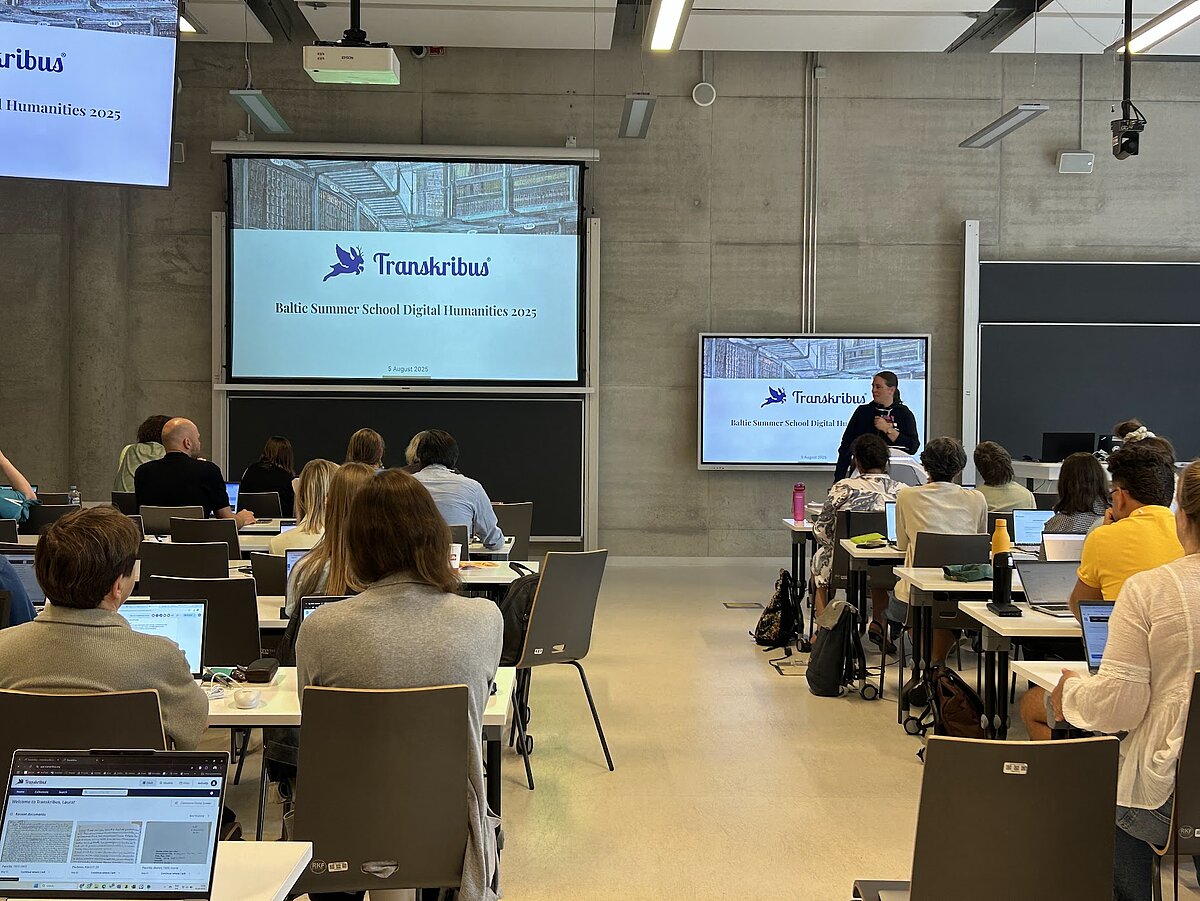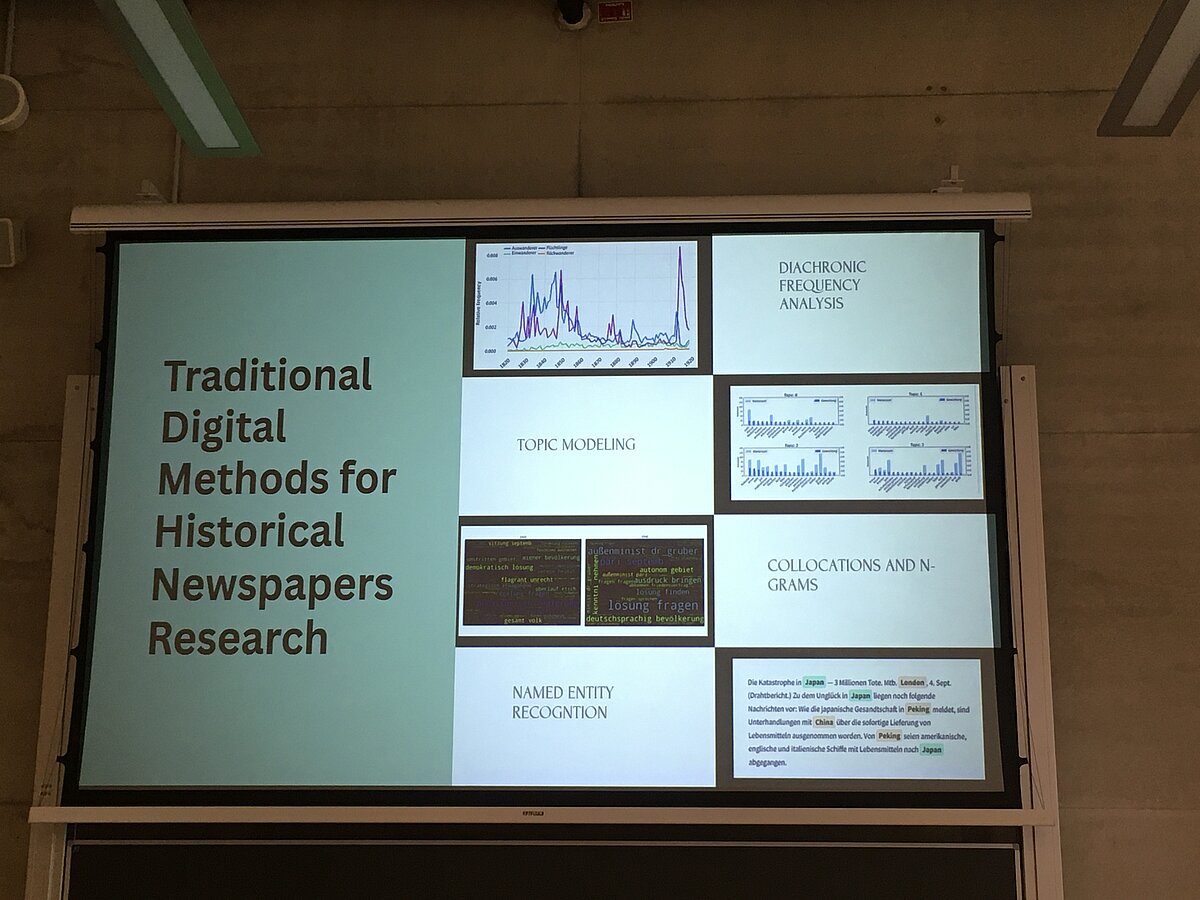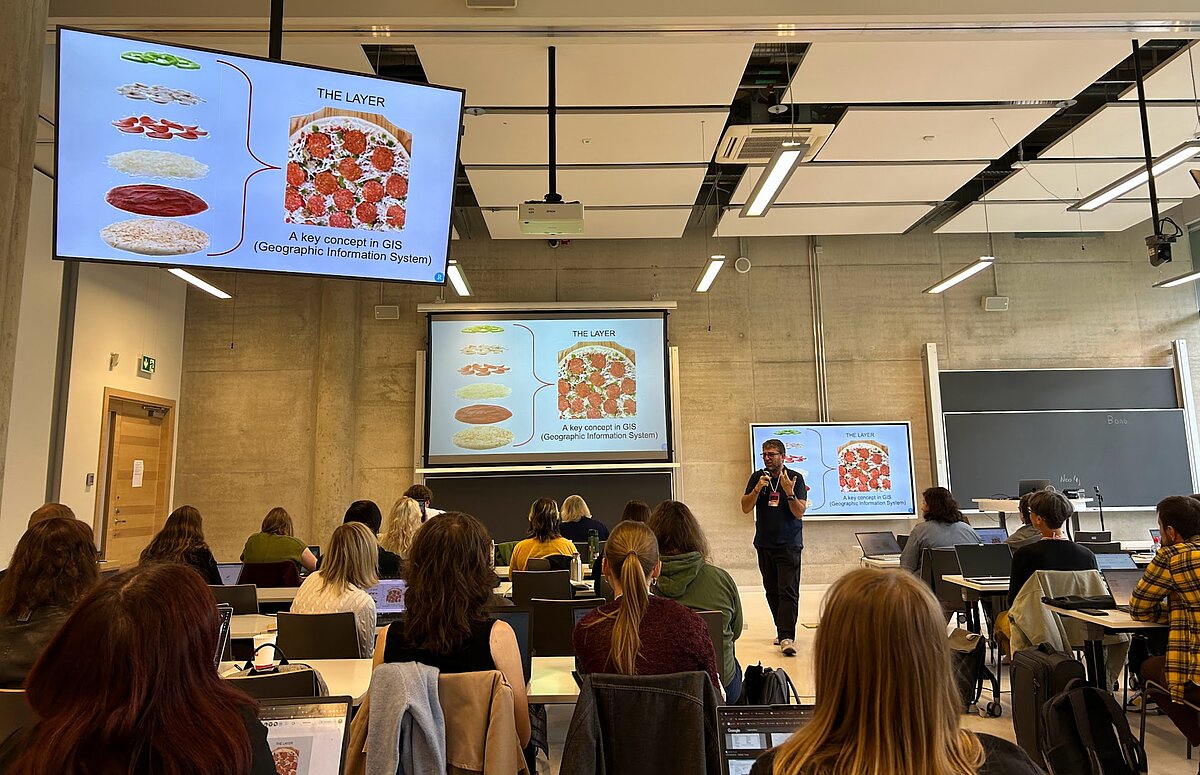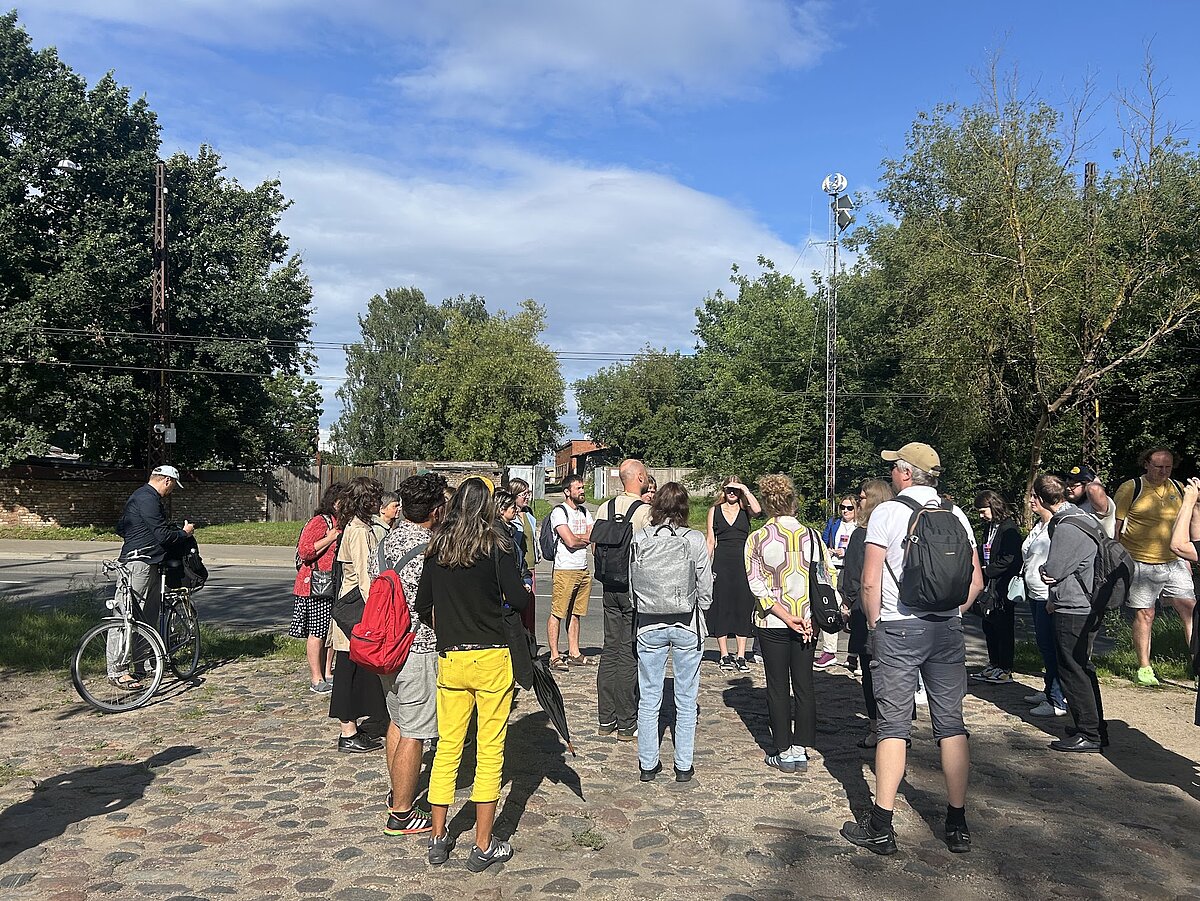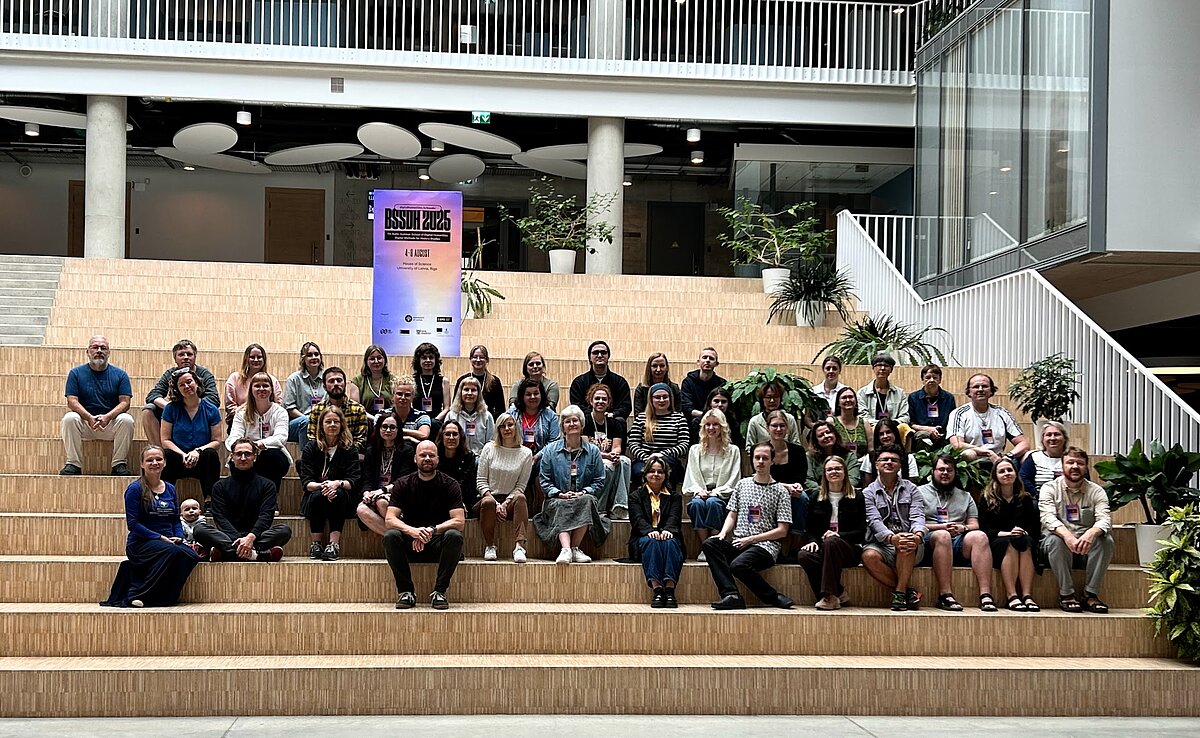
The participants were more than 50 historians, students, and memory institution specialists – mainly from the Baltic states, as well as from Poland, Croatia, Sweden, the United Kingdom, France, Germany, Belgium, and Greece. This summer school offers an opportunity to explore developments in the digital humanities, acquire technical skills, and gain an extensive set of resources and new contacts for future projects.
This year, under the guidance of experienced European researchers in the digital humanities, participants explored current debates and solutions related to AI-based approaches for handwritten text transcription, the use of computational methods to interpret missing historical data, the application of large language models in the humanities, as well as network analysis and the digital mapping of historical materials. The annually increasing number of participants – especially from Latvia – demonstrates that the field of digital humanities continues to grow in relevance, not only among emerging researchers but also among experienced scholars who actively seek to acquire new, practical skills for applying digital methods in humanities research.
Recordings of the public lectures and workshops from the summer school will be available on the YouTube channel @digitalhumanitieslv, where you can also watch open lectures from previous years, the Digital Humanities podcast, the digital research series, and other useful video resources.
Photo highlights from the event on the Digital Humanities in Latvia website.
The organisers thank all lecturers, participants, and sponsors for helping to create this inspiring environment of knowledge sharing!
We invite you to follow future digital humanities updates on our website and the Facebook group digitalhumanities.lv!
The summer school was organised by the Institute of Literature, Folklore and Art of the University of Latvia and the Digital Humanities Centre at the Faculty of Humanities of the University of Latvia, in cooperation with the National Library of Latvia. It was supported by the National Research Programme project No. VPP-IZM-Vēsture-2023/1-0003 “Latvian History: Social Morphogenesis, Heritage, and Challenges”, the ERDF project No. 1.1.1.5/3/25/I/011 “The University of Latvia and Institutes in the European Research Area – Excellence in Research and Cooperation”, as well as by the University of Latvia and the State Culture Capital Foundation.

 LU konference
LU konference